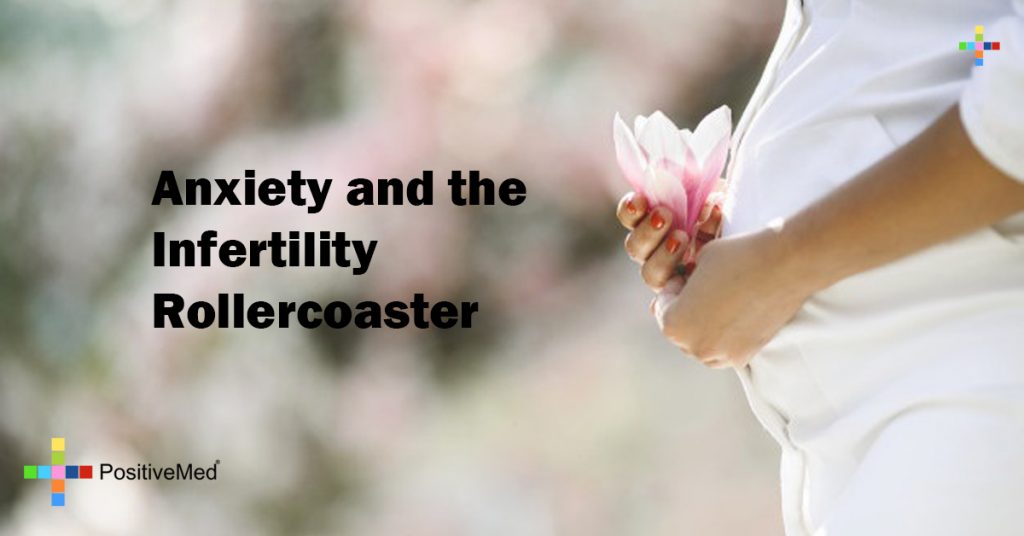
Many people all around us are struggling with infertility. Infertility can a silent hell. People do not talk about infertility issues like they would if they had a physical condition or other stressful circumstance in their life. Many times a couple choose to walk the road of infertility alone, discussing it only with their doctor. There are a myriad of feelings that go along with infertility and its treatment that can be hard to manage, and difficult on the couple as a unit. The anxiety of not knowing can be excruciating, and hard to understand for anyone who has not walked the road before.
Frequently there are communication breakdowns in the couple during infertility due to feelings of fear of blame, guilt, and worry of “talking about it too much.” Many times the man becomes overwhelmed because the woman “can’t talk about anything else” and shuts down because he is unable to “fix it”, leaving the woman on her own to navigate the monthly rollercoaster alone. Often the woman will obsess over every body sign and signal and her life becomes a barrage of online tools, thermometers and ovulation predictors. Her quality of life becomes wrapped up in where her body is in its cycle, and what information about the potential of pregnancy she can gather at that point. Constant disappointment can take its toll on the couple, especially if the journey has been a long one. There is a sense of shame that goes along with infertility that many of my clients express. Shame that their bodies have let them down, shame that good things are not happening to them (feelings of not deserving to get pregnant, blame at lifestyle choices made in the past such as abortion or other choices that can be extrapolated to have negative effect on becoming pregnant.).

Well meaning friends and relatives asking “when are you going to have a baby?” and an onslaught of baby pictures on Facebook and shower invitations can cause a couple to isolate and cut off socialization, compounding the pain and loneliness. The biggest toll of infertility, however, is the anxiety. At every turn having to exist with the unknown and the lack of control is exhausting and stressful. Having to work and function in the daily grind seems unthinkable, especially to the woman, who is focused on every twinge in her body.
Getting through infertility and actually thriving takes some special skills. Learning to exist in spite of not knowing if you are pregnant or not is the toughest part. Mindfulness goes a long way towards helping preserve sanity and quality of life. Mindfulness is a state of active, open attention on the present. When you’re mindful, you observe your thoughts and feelings from a distance, without judging them good or bad. Instead of letting your life pass you by, mindfulness means living in the moment and awakening to experience. Often our suffering is made more intense by remembering past suffering and worrying about future suffering. If we can stay in the moment and focus on what is happening in the here and now, our suffering will be greatly reduced.
Focusing on bodily sensations instead of thoughts helps get you off of the obsession wheel. “I feel the floor beneath my feet, I feel the sofa against my back, I feel the cool breeze in the room” are ways to center and ground yourself and help remain in the moment. When anxious thoughts arise, acknowledge them without judgment “oh, there is a thought” and allow the thought to float away as a leaf would fall from a tree into a stream.
Doing a body scan and addressing anxiety symptoms there is important. Close your eyes, and starting with toes and moving slowly up your body, ask yourself “Where am I tense?” When you discover a tense area, exaggerate it slightly, so you can become aware of it. Be aware of the muscles in your body that are tense. Then, for example, say to yourself, “I am tensing my neck muscles…I am creating tension in my body.” At this point, be aware of anything that is creating tension in your body and what you might do to change it.
Distress tolerance is another tool that can be very helpful. Learning to distract yourself by engaging in fun or meaningful activity is beneficial. Volunteering to help someone less fortunate goes a long way towards helping develop perspective and keeping your mind occupied. Learning to self-soothe by engaging in comforting activities like a bubble bath or exercise or a massage can engage the senses and lower anxiety.
Using imagery, you can create a situation or a scene that is different from the one that you are now in. In a way, you can leave the situation. Envision in your mind a place that you would like to be – a safe place, a relaxing place, a beautiful place. Focus on this place. Relax, and let yourself feel that you are in this place. It usually helps to notice details of the place that you are in. See that safe place, maybe a room, that is fixed up just the way you want it. Or imagine that spot along the ocean, or being with a good, safe friend.
Imagine things going well for you. Imagine that you know how to take care of the situation you are in. If you practice doing this, you will find that it begins to work for you. Things DO go better, and you CAN cope better. You can deal better with the crises in your life, if you practice feeling like you can take care of things.
Create a safe, comfortable place for yourself. It will help if you do this in a quiet room or a quiet spot outdoors. Try to relax, and close your eyes if you feel safe. Settle into this comfortable, safe, beautiful place. Let your hurtful feelings drain or wash out of you, relieving you and making you more comfortable. Breathe slowly and gently as you do this.
Infertility is a virtual minefield of emotions. It is possible to navigate these emotions and to maintain emotional regulation with practice. Good communication as a couple is vital. Sometimes individual or couples counseling can really help process everything that is going on and help turn a stressful situation into a growth and learning opportunity.
Carolyn Tucker LAPC is a psychotherapist and life coach who specializes in the treatment of anxiety in Atlanta or via distance (Skype). For more information see www.carolyntuckertherapist.com.





